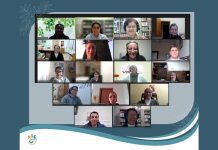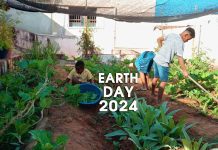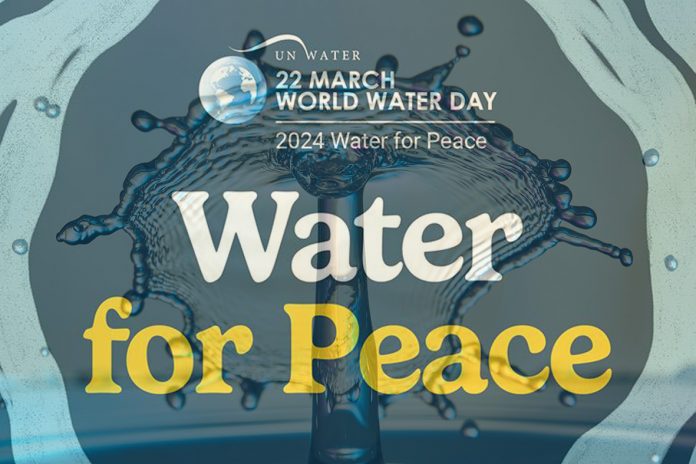Rome (Italy). 22 March 2024, marks World Water Day, Annual United Nations Day to Raise Awareness of the Lack of Access to Drinking Water of Thousands of Earth Dwellers and the Urgency of Addressing the Global Water Crisis.
“Water can create peace or conflict.” Thus, the United Nations introduces this year’s theme for World Water Day: “Water for Peace”. A day this year more important than ever also because of the numerous conflicts that are now raging all over the world, making critical the conditions for survival of many civilians. This represents a front on which the United Nations has been committed continuously since 1993. Water is the essential good par excellence, to which everyone should have access, in a safe and protected way.
But how are water and peace closely linked? The UN explains this in a dedicated page on the official website. In cases of water scarcity, or difficult reception of water, these conditions can increase tensions already present in a fragile territory. Water is therefore described as a potential weapon (during an armed conflict to maintain control over the territory), as a trigger (when two states have different ideas and therefore irreconcilable) and as an accident (such as attacks on civil infrastructure, including water systems).
Access to drinking water, hygiene, and health services is indeed a fundamental human need for health and well-being, also underlined by one of the development objectives of the 2030 Agenda, in particular objective 6.
Billions of people could be left without such services by 2030 if efforts are not redoubled. 2.2 billion people still live without safe drinking water, including 115 million people who drink surface water. (WHO/UNICEF, 2023), about half of the world’s population is experiencing a severe water shortage for at least part of the year (IPCC, 2022) and only 24 countries declare that all their cross-border basins are covered by cooperation agreements (UN-Water, 2021).
The growing demand for water is fueled by population growth, urbanization, and the increasing needs of the agricultural, industrial, and energy sectors. It is therefore essential to promote hygiene education to ensure universal access to safe drinking water by 2030. One of the goals is certainly the involvement of civil society, investing in water research and promoting inclusion, important strategies to address these challenges and ensure a sustainable future for all.
IIMA – the Human Rights Office of the International Mary Help of Christians Institute in Geneva – has often addressed this issue. In the recent report drawn up by IIMA in the Ethiopian regions, in particular the Tigray region, the lack of water in rural areas is highlighted.
The FMA in Ethiopia report that, due to drought, flooding, and conflict, food insecurity is a major concern, with 20.1 million people in need of food assistance. According to the Ethiopian Demographic and Health Survey of 2016, 38% of children under 5 are malformed or too short for their age; this is due to chronic malnutrition.
Due to the drought, there is a water crisis in Ethiopia. Almost 25% (27 million) of the Ethiopian population lives in areas of high-water stress. Some locations only receive water once a week.
Each/in primis can become a promoter of safe access to water as a tool of peace. Water can be a stabilizing force and a catalyst for sustainable development, as it is an inherent human right in every aspect of life. At local and national level, cooperation is essential, promoting a circular economy and respecting the human rights of people.
“When we ‘seek first the kingdom of God’ (Mt 6:33), maintaining a just relationship with God, with humanity, and with nature, then justice and peace can flow like an inexhaustible stream of pure water, nourishing humanity and all creatures” (Pope Francis, 25 May 2023).




















